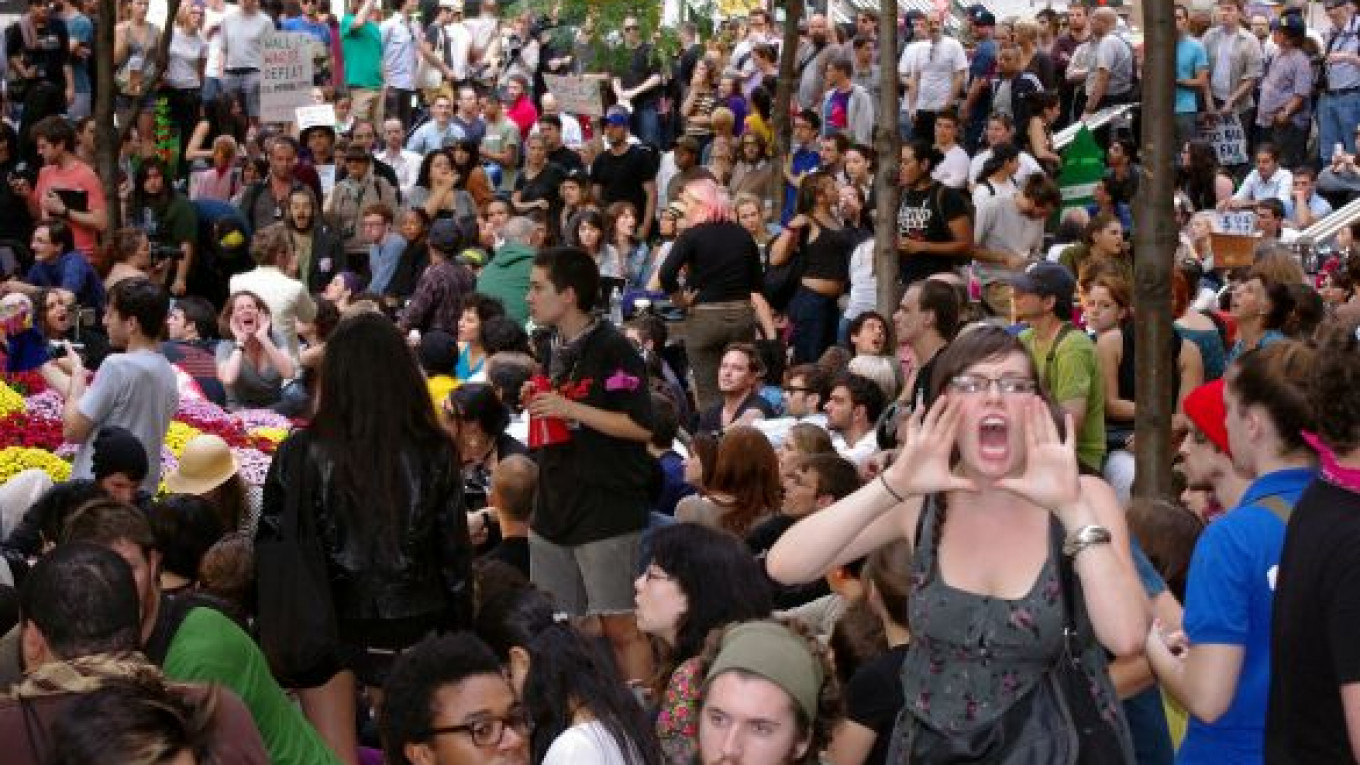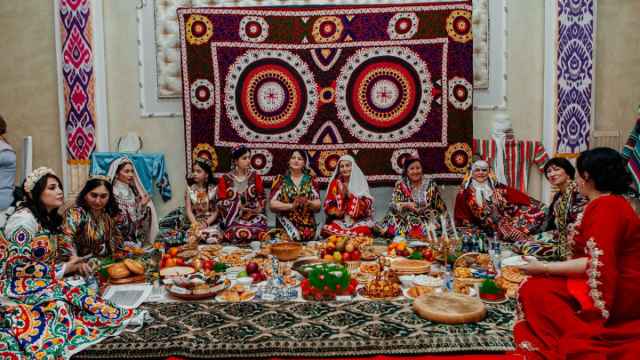Political art is not hard to find these days. Clever protest signs and elaborate street art have called for changes at recent protests, a masked female punk group performed on Red Square, and now a summer school looks at the idea of art and politics.
Viktor Misiano, a former contemporary art curator at the Pushkin Museum, set up the Moscow Curatorial Summer School, which finished Friday, with the relevant theme of "Doing Art Politically."
"The groups Voina and Pussy Riot gave their own answers, " said Misiano, referring to the art groups who have alternatively shocked, amused and bewildered the country with their oppositional art actions. "My own answer is different. My answer is what I have as a professional."
The school attempted to give a new generation of curators a sense of independence to show art that deals with today's problems, said Misiano.
Art should not just be for entertainment but "to propose alternative values, ideas," he said. The school brought in a series of artists and curators known for their activism to speak at the school.
Artist and writer Gregory Sholette, who teaches at Queens College in New York, gave lectures on public art and the role of art in the Occupy Wall Street protests.
Other participants included Brazilian Kristina Fryer, who talked about Latin American art in the 1960s and 70s, philosophers Boris Buden and Gerald Raunig, and British art professor John Roberts, who lectured on art theory and its interaction with politics.
"Its not to do political art. Its to do art politically," Misiano said.
It is a theme, he says, ignored by mainstream art, which he says is far too often subsumed by state and corporate backing.
Misiano said that contemporary art was seduced when state and corporate money began flowing at the start of the last decade.
"Contemporary art museums and institutions are based on the corporate structure and are dependent on money from corporations. Even if they don't dictate what to do, they still control the space," New York-based curator Olga Kopenkina said.
Sholette took part in the Occupy Wall Street protests.
"There are plenty of examples of historical moments when this mutual embrace of art and political organizing has occurred," Sholette said. "It seems to be returning with a new level of intensity now at the start of the 21st century."
One of the ironies of the course is that the summer school itself is backed by corporate money that has links with the pinnacles of state power.
The school is supported by the Victoria Fund, an organization founded in 2009 and headed by Leonid Mikhelson, part owner of gas production giant Novatek and Russia's tenth richest man, according to Forbes magazine.
The fund writes on its site that its aim is to provoke "professional debate around contemporary art as well as to foster broad public engagement with it through publishing, forums and educational programs, workshops and lectures." Mikhelson's daughter, Victoria, is on the fund's board.
"This program is sponsored by corporate money because we don't know how to get out from the situation," Kopenkina said. "But in the end you think about students, trying to find their way, trying to find answers to their questions and the possibility to come here and help and contribute somehow."
Misiano has a simple hope for the school.
"If five young professionals remain in the field of curatorial practice I would be very glad. Five new activists, five new active presences with anger and position could change many things," he said.
See for more details.
A Message from The Moscow Times:
Dear readers,
We are facing unprecedented challenges. Russia's Prosecutor General's Office has designated The Moscow Times as an "undesirable" organization, criminalizing our work and putting our staff at risk of prosecution. This follows our earlier unjust labeling as a "foreign agent."
These actions are direct attempts to silence independent journalism in Russia. The authorities claim our work "discredits the decisions of the Russian leadership." We see things differently: we strive to provide accurate, unbiased reporting on Russia.
We, the journalists of The Moscow Times, refuse to be silenced. But to continue our work, we need your help.
Your support, no matter how small, makes a world of difference. If you can, please support us monthly starting from just $2. It's quick to set up, and every contribution makes a significant impact.
By supporting The Moscow Times, you're defending open, independent journalism in the face of repression. Thank you for standing with us.
Remind me later.






